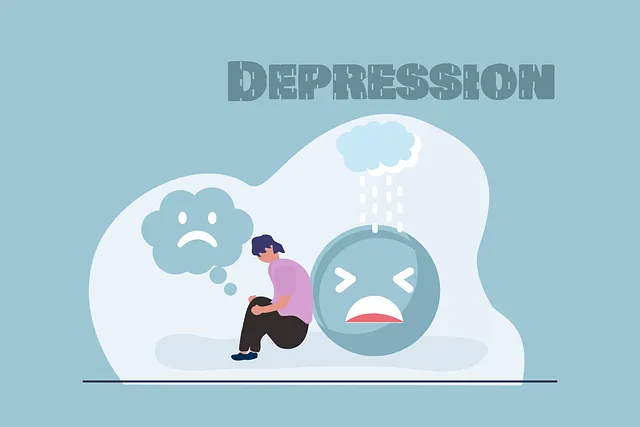Kaiser Permanente (KP) Louisville is a leading advocate for improved mental health in the region through holistic initiatives. They offer tailored solutions, train healthcare providers, and destigmatize mental health concerns. The diverse mental health policy landscape includes insurance coverage and community support systems. Despite KP's efforts, disparities persist, especially for underserved communities. To address these gaps, they should implement empathy-building strategies and evidence-based programs. Effective advocacy through partnerships and strategic collaborations is key, as shown by KP Louisville. Measuring impact through evaluation ensures tailored mental health services and promotes transparency. Focusing on these aspects can enhance the accessibility and inclusivity of mental health care in Kaiser Permanente's Louisville operations.
Mental health policy analysis and advocacy are crucial components of improving access to care, especially within specific communities. This article explores Kaiser Permanente’s initiatives in Louisville, analyzing the broader mental health policy landscape and identifying gaps that hinder patient care. We delve into strategies for effective advocacy and collaboration, emphasizing the importance of measuring impact through evaluation and continuous improvement. By focusing on Kaiser Permanente’s approach, we provide insights into actionable steps to enhance mental health services in Louisville and beyond.
- Understanding Kaiser Permanente's Mental Health Initiatives in Louisville
- Analyzing the Current Mental Health Policy Landscape
- Identifying Gaps and Challenges in Access to Care
- Strategies for Effective Advocacy and Collaboration
- Measuring Impact: Evaluation and Continuous Improvement
Understanding Kaiser Permanente's Mental Health Initiatives in Louisville

Kaiser Permanente, a renowned healthcare organization, has made significant strides in advancing mental health initiatives in Louisville. Their comprehensive approach focuses on both individual well-being and community resilience. Through various programs, Kaiser Permanente aims to reduce the stigma associated with mental health issues and promote positive thinking within the region.
The organization prioritizes access to quality mental healthcare services, offering a range of solutions tailored to diverse needs. This includes innovative treatments, stress reduction methods, and comprehensive support for at-risk populations. Additionally, Kaiser Permanente invests in training healthcare provider cultural competency, ensuring that staff are equipped to address the unique challenges faced by different communities in Louisville.
Analyzing the Current Mental Health Policy Landscape

The current mental health policy landscape is a complex web that varies significantly across regions and demographics, including the unique case of Louisville, Kentucky, where organizations like Kaiser Permanente have been at the forefront of mental healthcare innovation. In this diverse ecosystem, policies range from insurance coverage for mental health services to community-based support systems, each playing a crucial role in addressing rising mental wellness concerns. For instance, Kaiser Permanente’s extensive network and resources have facilitated accessible mental health care, including integrating Mindfulness Meditation practices into their treatment plans.
Louisville’s mental health advocacy has gained momentum through collaborative efforts between healthcare providers, researchers, and community leaders. This regional focus mirrors a global trend towards understanding the interconnectedness of mental wellness and overall health. The Mental Wellness Podcast Series Production, for example, serves as an engaging medium to educate and empower individuals, fostering open conversations that dispel stigma associated with seeking mental health support. By analyzing these policies and grassroots initiatives, advocates can identify gaps and advocate for evidence-based solutions to create a more holistic and inclusive mental health care system.
Identifying Gaps and Challenges in Access to Care

Access to quality mental health care remains a significant challenge, particularly for underserved communities. An in-depth analysis of Kaiser Permanente’s mental health services in Louisville reveals notable gaps that hinder individuals from receiving the support they need. Many patients face barriers such as limited availability of specialized providers, long wait times, and financial constraints, which collectively contribute to an uneven distribution of care.
Empathy Building Strategies and Emotional Well-being Promotion Techniques could significantly improve patient experiences. Implementing evidence-based Stress Management programs tailored to diverse populations can enhance access and outcomes. By addressing these challenges, Kaiser Permanente Louisville has the potential to create a more inclusive and responsive mental health system, fostering better emotional well-being among its members.
Strategies for Effective Advocacy and Collaboration

Effective advocacy for mental health policy requires strategic collaborations and diverse approaches to address complex issues. Organizations like Kaiser Permanente Louisville play a pivotal role in this process by facilitating partnerships between healthcare providers, policymakers, researchers, and community groups. These alliances enable comprehensive strategies that go beyond individual treatment, focusing on systemic change.
One such strategy is integrating evidence-based practices, such as Social Skills Training and Burnout Prevention programs, into policy frameworks. By doing so, advocates ensure that mental health support is not only accessible but also tailored to meet the unique needs of diverse populations. Continuous engagement with stakeholders through advocacy events, research dissemination, and public education further strengthens these efforts, fostering an environment where mental well-being is prioritized and supported at all levels, from local communities to national policies.
Measuring Impact: Evaluation and Continuous Improvement

Effective mental health policy analysis and advocacy require a robust system for measuring impact. Evaluation is key to understanding the effectiveness of implemented strategies, such as those offered by Kaiser Permanente mental health Louisville. By assessing outcomes related to Empathy Building Strategies and Self-Esteem Improvement, for instance, advocates can gather evidence to refine programs and ensure they meet the needs of their target populations. This continuous improvement approach not only enhances service delivery but also fosters better communication strategies among healthcare providers and individuals seeking support.
Regular evaluation enables advocacy groups to identify areas where policy changes are needed, ensuring that mental health services remain up-to-date and responsive to emerging challenges. Incorporating feedback from diverse communities, including those often overlooked in mental health discussions, is crucial for creating inclusive policies. Through rigorous evaluation, advocates can demonstrate the tangible benefits of their efforts, fostering a culture of transparency and accountability within the mental health landscape.
Mental health policy analysis and advocacy are essential components of addressing the complex issues surrounding access to care. By examining Kaiser Permanente’s initiatives in Louisville, we’ve highlighted successful strategies that can guide future efforts. Analyzing the current policy landscape revealed critical gaps, emphasizing the need for collaborative approaches. Through effective advocacy, partnerships, and continuous evaluation, we can improve mental health services, ensuring better outcomes for individuals in Louisville and beyond, with a particular focus on Kaiser Permanente’s commitment to this cause.






